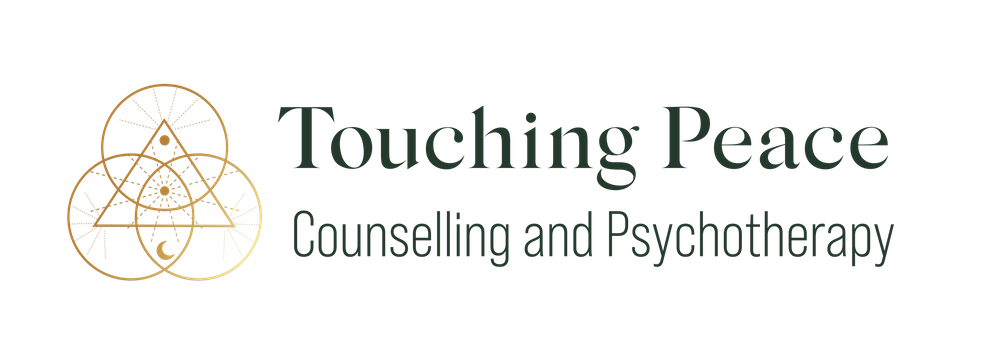In integrative counselling and psychotherapy, different therapeutic approaches are thoughtfully woven together to suit your unique needs, goals, and ways of experiencing the world. It’s a collaborative and flexible process that supports emotional healing, self-awareness, and personal growth.
While counselling often focuses on short-term immediate challenges and practical strategies, psychotherapy may explore deeper emotional patterns and longer-term change. An integrative approach allows space for both, meeting you exactly where you are.
Working this way isn’t simply about mixing techniques—it requires in-depth training, clinical experience, a deep understanding of each therapeutic model, along with the sensitivity and insight to know what might be most helpful at any given moment.
I draw on approaches that complement each other while offering different ways of understanding the challenges you are facing. This allows us to explore your experience from multiple angles, at a pace and depth that feels right for you.
Integrative Counselling and Therapy
The therapeutic models I use in my practice…
Sensorimotor and somatic approaches help us pay attention to the body—its sensations, posture, and subtle cues—offering insight into how emotions and experiences are stored physically, often outside of conscious awareness.
Attachment theory explores how our earliest relationships shape our internal expectations of connection, trust, and safety with others. It can help make sense of recurring patterns in adult relationships and offer a path toward more secure and satisfying connections.
Psychodynamic therapy looks at the influence of early life experiences and how they continue to shape our current behaviours, emotional responses, and relationship dynamics—sometimes in ways we don’t even realise.
Polyvagal theory provides a framework for understanding how our nervous system responds to stress, danger, or disconnection. It helps explain why we might shut down, become overwhelmed, or struggle to feel safe—even when there’s no obvious threat.
Gestalt therapy brings awareness to the present moment and what’s happening “in the room.” It encourages creativity, spontaneity, and emotional honesty, offering opportunities to resolve unfinished business from the past by working with it in the here and now.
Internal Family Systems (IFS) is a gentle yet powerful way of exploring the different “parts” of ourselves—such as the inner critic, the protector, or the wounded child. We use this as a tool to understand complex or conflicting internal parts, with a view to understanding and relating to them with compassion and curiosity. The goal is always integration and wholeness.
These approaches aren’t used in a rigid or prescriptive way. Instead, they offer a rich and adaptable toolkit to support you in whatever you’re navigating—whether that’s anxiety, grief, identity, relationships, or simply a desire to understand yourself more fully.
What does a session feel like?
My way of working is very responsive to what’s present in the room. Each therapy session is different because every person and every moment asks for something unique. I draw on intuition and experience, combined with skilled knowledge of different therapeutic modalities, to meet you in the way that feels most supportive.
Some counselling conversations are fast-paced and cognitive — exploring beliefs, thoughts, and patterns. Others are slower, quieter, more reflective, helping you reconnect with your emotions and your body. Some people work best with imagery or metaphor, while others prefer to stay close to the felt sense of their body and nervous system. I reflect back what I’m hearing and noticing to make sure I understand.
If we are working to address anxiety or overwhelm, we might explore simple tools for grounding, calming, and nervous system regulation.
Many people come to therapy describing their inner world as a tangled mess — confusing, hazy, or hard to make sense of. My role is to hold a sense of clarity and help you gently separate out the different layers of what’s happening. It’s rarely just one issue, and my approach allows us to explore each contributing factor in a way that feels manageable, with the broader aim of integration and wholeness.
Storytelling is a deeply human way of healing. Sometimes our sessions will involve telling your story — zooming out to understand its meaning, impact, and how it has shaped you. As you speak, I may invite you to slow down and notice what’s happening inside. Sensations in the body often hold valuable information about where to pause, soften, or go deeper.
We might revisit the past, explore what’s unfolding between us in the present moment, or talk in very practical terms about small, actionable steps to support emotional balance and daily life.
I’m guided by a deep respect for the nervous system and the body’s natural wisdom. I aim to be a co-regulating, calming presence — supporting your system to find safety and steadiness. In the background, I also work with an attachment lens, aware of how early experiences and relationships can influence how we connect, trust, and relate now.
What I won’t do is simply nod along, repeat back what you’ve said, and call it “active listening.” Nor will I turn every question back to you. My aim is to be real, engaged, and present — walking alongside you in the work of understanding and healing.
Contact Me
The first step can feel big. Please call for an informal chat where we can figure out together if Touching Peace is the right fit for you.
Call 040 640 7731
“Until you make the unconscious conscious, it will direct your life and you will call it fate. ”

